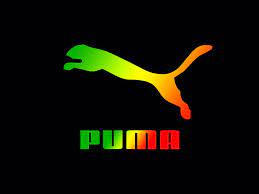
The sports apparel maker Puma expects its sales to grow by at least 10 per cent in 2022, the company said, but also warned that its profit growth could be muted because of a consumer boycott in China as well as a rise in input costs.
For the entire of 2022, the company now expects its operating profits to be about 600 million to 700 million euros ($679-$792 million), which was higher than the 557 million that the company had posted in 2021 but was short of the analysts' expectations of 692 million, according to Refinitiv Eikon data.
The stocks of the company slid by 0.9 per cent after the company’s warning as analysts voiced dissatisfaction with the forecast.
Puma announced higher-than-expected preliminary sales and core profit in January, including a 14 per cent increase in currency-adjusted fourth-quarter sales. But the company also stated that continued rise is expenses for freight and raw material, as well as restrictions imposed in various parts of the world because of the Covid-19 pandemic is likely opt negatively impact its profitability for 2022.
While stating on Wednesday that it was expecting to register a sales growth rate of at least 10 per cent for the current year, the German sportswear maker also warned its growth in profits would be hit by a consumer boycott in China and increased input cost pressures.
Due to Covid-19, factories in Vietnam, a key supplier to the footwear industry, were shuttered for months last year.
Puma is progressively boosting prices to meet rising costs, with the majority of the increase coming in the second half of the year, according to CEO Bjorn Gulden.
Gulden predicted that sales in China would decline again in the first quarter and said he couldn't predict if they would rise again in 2022, noting that Chinese celebrities were still avoiding marketing with Western companies, while athletes were returning.
Puma, along with competitors Nike and Adidas, has faced criticism in China since last March for stating that it will no longer acquire cotton from Xinjiang due to concerns of human rights violations against Uyghur Muslims. Beijing denies any wrongdoing.
Puma's fourth-quarter sales in China decreased 27 per cent while improving in the rest of Asia/Pacific.
Nike stated in December that it was more optimistic of resolving supply chain difficulties in the new fiscal year after exceeding quarterly revenue and profit targets despite a 20 per cent drop in sales in Greater China.
(Source:www.reuters.com)
For the entire of 2022, the company now expects its operating profits to be about 600 million to 700 million euros ($679-$792 million), which was higher than the 557 million that the company had posted in 2021 but was short of the analysts' expectations of 692 million, according to Refinitiv Eikon data.
The stocks of the company slid by 0.9 per cent after the company’s warning as analysts voiced dissatisfaction with the forecast.
Puma announced higher-than-expected preliminary sales and core profit in January, including a 14 per cent increase in currency-adjusted fourth-quarter sales. But the company also stated that continued rise is expenses for freight and raw material, as well as restrictions imposed in various parts of the world because of the Covid-19 pandemic is likely opt negatively impact its profitability for 2022.
While stating on Wednesday that it was expecting to register a sales growth rate of at least 10 per cent for the current year, the German sportswear maker also warned its growth in profits would be hit by a consumer boycott in China and increased input cost pressures.
Due to Covid-19, factories in Vietnam, a key supplier to the footwear industry, were shuttered for months last year.
Puma is progressively boosting prices to meet rising costs, with the majority of the increase coming in the second half of the year, according to CEO Bjorn Gulden.
Gulden predicted that sales in China would decline again in the first quarter and said he couldn't predict if they would rise again in 2022, noting that Chinese celebrities were still avoiding marketing with Western companies, while athletes were returning.
Puma, along with competitors Nike and Adidas, has faced criticism in China since last March for stating that it will no longer acquire cotton from Xinjiang due to concerns of human rights violations against Uyghur Muslims. Beijing denies any wrongdoing.
Puma's fourth-quarter sales in China decreased 27 per cent while improving in the rest of Asia/Pacific.
Nike stated in December that it was more optimistic of resolving supply chain difficulties in the new fiscal year after exceeding quarterly revenue and profit targets despite a 20 per cent drop in sales in Greater China.
(Source:www.reuters.com)





